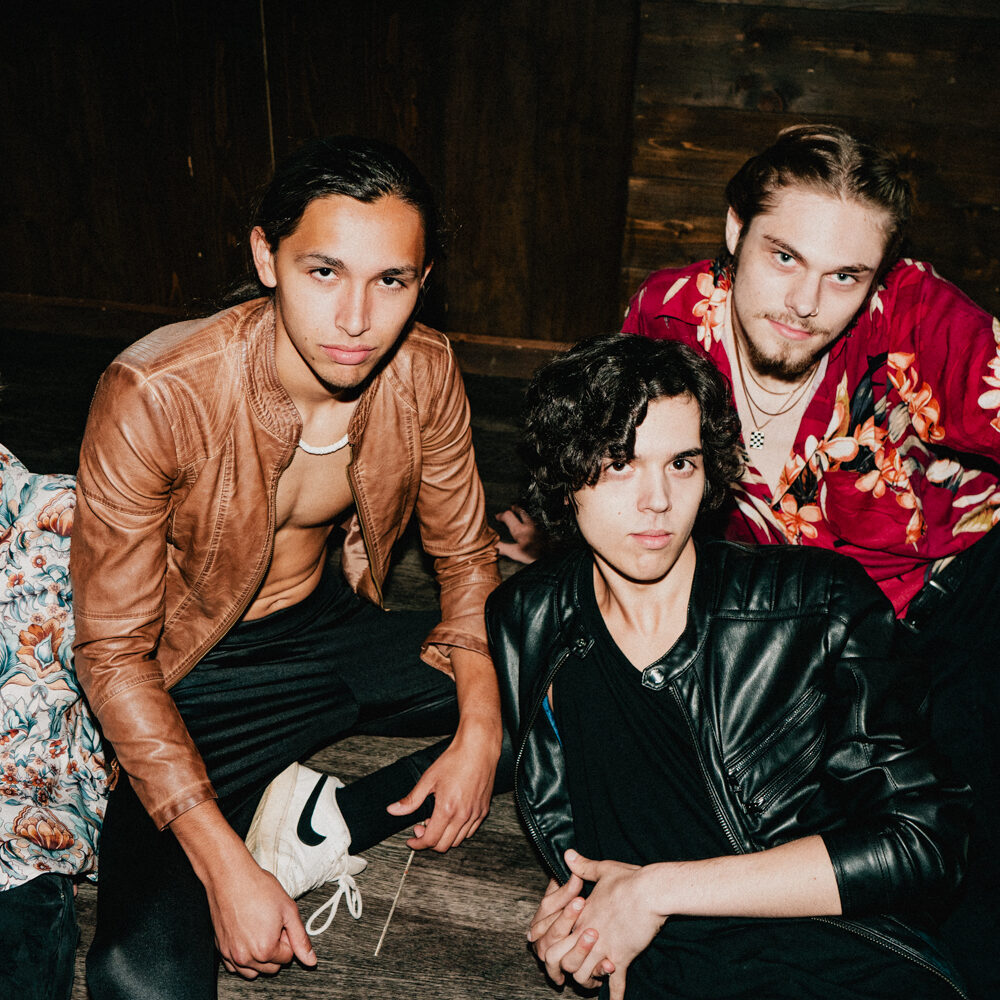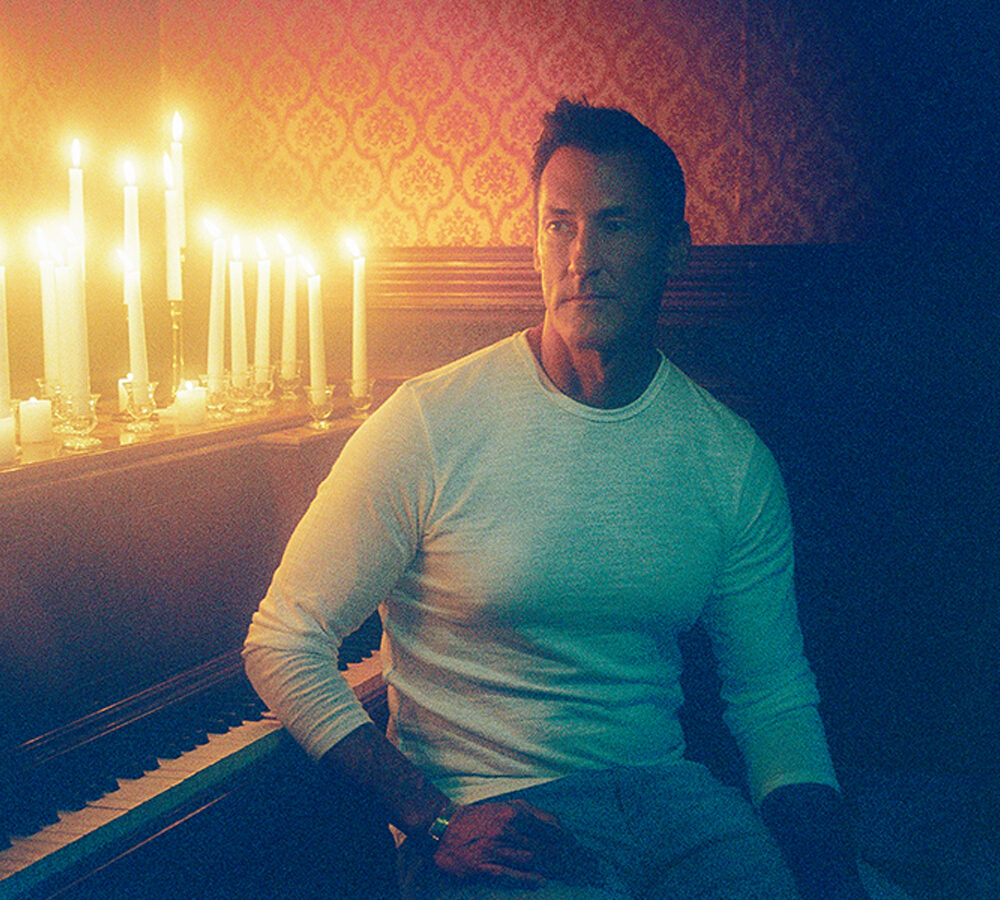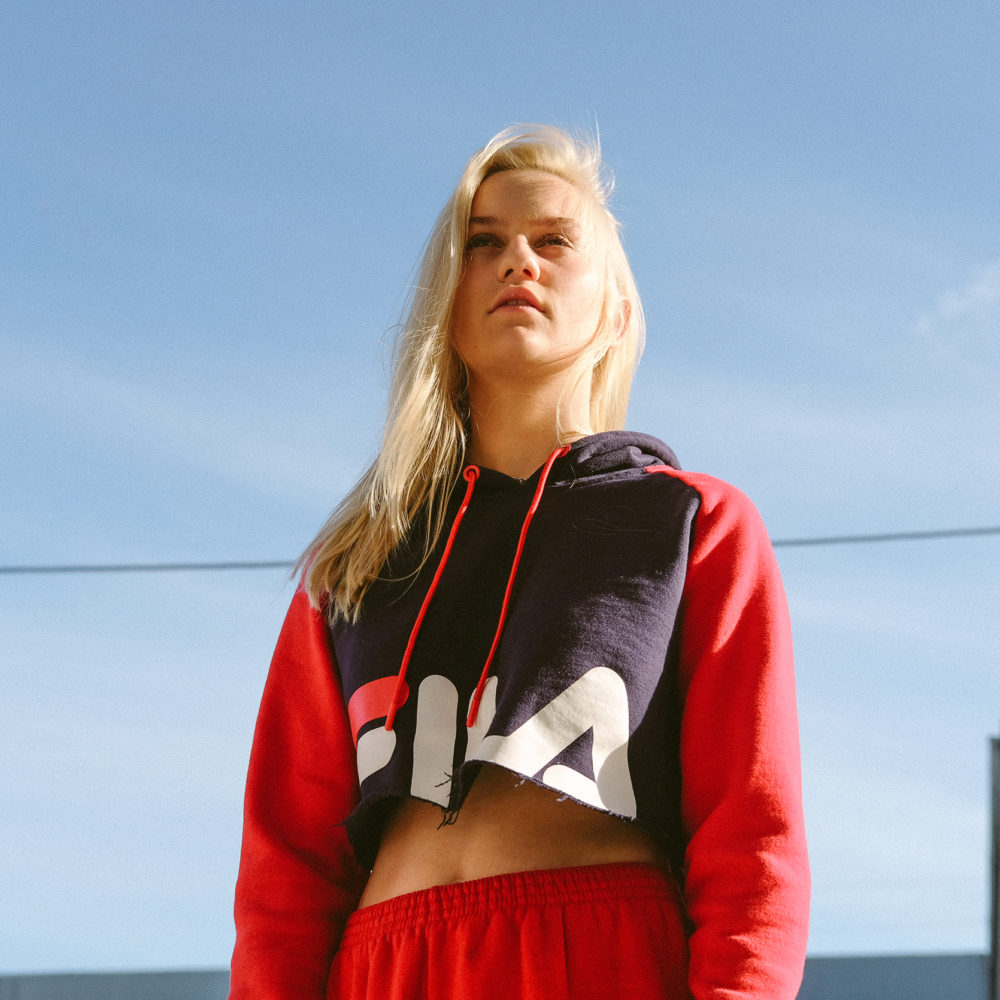Singer-songwriter BARNS COURTNEY brings to the table an eclectic mix of raspy blues-rock, gruff R&B with a melodic indie twist, and the classic stomp of Americana tunes to create a sound like no other. Barns walks us through what it was like being dropped from the first label that signed him at nineteen years old, and how he kept his dream alive when all odds were against him. He also discusses his upcoming headline tour, his newly written debut album, and his anticipation regarding hitting the Lollapalooza and Governor’s Ball stages this summer.

I know that you spent some time in Seattle growing up before moving back to your hometown in the UK. What is the music scene in Seattle like?
BARNS COURTNEY — The music scene in Seattle is actually amazing. There are so many bands that come through and interesting venues to go seem them that, and then you have Bumbershoot festival right in the center of the city which is amazing. Yeah, I love it here.
I know your song “Fire” (among others) was very successful and as a result you’ve been deemed an overnight sensation. Does it feel that way? Or have people overlooked the struggles you’ve faced and the hard work you’ve put in to get where you are?
BC —Yeah, it doesn’t feel that way at all. I’ve been doing this for a decade. I started my first band when I was fifteen, played my first gig at sixteen (not including school concerts of course) to a bunch of really unenthused German guys at this bar called Wild at Heart in Berlin. My dad took me there for his birthday, and his buddy who he used to jam with just after the fall of the Berlin Wall was playing a gig, so he put me on the bill. It was terrible. I tried to get these men to clap their hands and they were not having it. Bad, bad time for me. It’s been a really, really long and drawn out process. I signed my first record deal when I was nineteen to Island Records, and we went to Los Angeles and recorded the record and it all seemed really exciting and then… nothing. We waited in this house that we lived in together. We all moved to London to be in the band and… nothing. We didn’t hear anything from the producer. No record. A year went by. No record. Meanwhile, we were having the time of our lives at this house. I mean, we partied every single night. We built this machine that would carry beer from the bottom floor to the top floor, and we filled the house with these mannequins we found and spray-painted them all multi-colours. It was just a freaky household. We had Furbies and specimen jars all over the place. After the first year, things started to take kind of a dark turn. We’re growth-seeking beings as humans. We need to be going towards something, and we kind of started to go crazy because we had all of this creative energy and nowhere to put it. We wrote five albums in this house with no outlet. We weren’t allowed to put anything out. Eventually, three years went by and the house was disgusting. You start to get into this weird routine and it’s very damning of human existence. It’s just not cohesive. It’s not a normal way of being. It was just a really hard time because we were all wide-eyed and excited to begin our journey as musicians at nineteen, and then the enthusiasm was slowly drained over the course of three years of nothingness and struggling to make something come to fruition. Then, all of a sudden, we were dropped and the dream was over. We couldn’t afford the house anymore. The bass player and drummer moved home with their parents. The guitar player moved into a decommissioned old folks home in North London. I moved in with my girlfriend at the time and spent another three years, after getting dropped from Island, trying to get somebody to record my records. I didn’t have any money or qualifications; I was woefully unprepared for the real world. I was doing random, odd jobs to try to stay afloat. I used to sell cigarettes in nightclubs, with a little tray in front of me like a piece of World War II eye candy. I just didn’t want to get a real job because I didn’t want to stop myself from getting studio opportunities.


This summer is going to be busy now that you’re touring and playing festivals like Lollapalooza and Governors Ball. What has the anticipation been like? What kind of preparation do large-scale festival sets entail?
BC — I’m so excited. I’m just going to go all out. I don’t have a budget for a band so I’ve got my tour manager playing bass, guitar, and keys. He doesn’t know how to play keys but he will! I’ve got my friend Rob, who’s the session drummer, who has agreed to half his rate and basically play for nothing. I’ve got him doing backing vocals, triggering stuff in his drum kit, triggering effects, and playing piano with his drumsticks on a keypad. He’s so great. He’s doing everything. We only have the budget for two weeks of rehearsal, so we’re just going to go in there and give it everything we’ve got. Lollapalooza isn’t until halfway through the tour, so practice is a thing. We’ll be fine!
You’ve gone from touring with acts like The Who, Ed Sheeran, and The Libertines to performing your own headline shows. Is it difficult going from playing to a few hundred people to a few thousand? Are the energy levels and enthusiasm of the audience the same regardless of the size of the crowd?
BC — Absolutely. When you’re playing for a small crowd, say a hundred people, it’s a very different social dynamic. The crowd psychology is very different. When you play to thousands of people, they just kind of assume that if you’re on that stage and there are thousands of them watching you, you must have some idea of what you’re doing. So, they actually listen to you more and are easier to play for. I find that for small crowds you have to work a lot harder. I wouldn’t say it’s easier actually, I’d say it’s different. For smaller crowds, it’s more helpful to try to engage them on a personal level and talk to them individually because you can see the whites of everyone’s eyes. With bigger crowds, it’s more about keeping the momentum of the show going with bigger interludes and more musical things than actually speaking to them on a one-on-one level.

I’m curious to know, who was the first artist or band you saw perform live? What was that experience like? Has that experience influenced the way you perform your shows today?
BC — The first concert I ever saw live was the Foo Fighters at this tiny little theatre with maybe 2000 capacity in Ipswich. My step-mom saw that they were doing this random unannounced warm-up show, and she got in the line and called me and said, “I’m in line for the Foo Fighters. Get down here now and you can take my place.” I went and got the tickets and I was just really blown away by how charismatic Dave Grohl was. This goes back to what I was saying about big crowds vs. small crowds; this was a small show so he talked a lot. You get away with that. It’s almost necessary with smaller crowds, and he was just so funny and my little eyes just lit up. I was so electrified by the whole thing. Just being there so close to Dave Grohl, it was very impactful. I like how Charles Bukowski says it in that poem So you want to be a writer?. If the sun doesn’t burn in your gut, then don’t do it. The sun was definitely burning in my gut that day when I saw the Foo Fighters.
How is your upcoming record expressive of where you are right now? How will it differ from the EP you released in February?
BC — I recorded this record entirely on the road because of the way everything unfolded. As I said before, the song “Fire” was released in the movie Burnt and suddenly I had to be on tour every single day for almost two years. This is the first long break that I’ve had since that happened. So I got my friend Sam and I just took him on the road, and we recorded the vocals for one song in Austin and then we’d work on the drums backstage at a festival. All along the way I’ve been recording people that I’ve met. You’ll hear a homeless person that I met in London; we talked and then I made a beat out of the stuff he was saying to me. There was this amazing taxi driver from Nashville who I talked to. She was so cool. She was saying to me, “There are so many musicians who never got the recognition and never got to be where they should’ve been today. So you keep chuggin’ out there sweetie, you’re gonna blow up!” The record is really a very truthful expression of how I felt from before I got signed, to when everything was blowing up, to now. “Fire” and “Glitter & Gold” were all written during that period when I had nothing; when I was struggling and I was desperately trying to keep the passion that I had as a child alive. I think what you’ll hear on the record are different expressions of how I was feeling on the road.
When you’re at a gig, is there a particular song you perform that you feel unifies you and your audience?
BC — I think the song changes depending on the night. Sometimes the audience chooses the song. People don’t realize that it’s a very collaborative process and that that moment, that shiny moment that everyone wants to come backstage and get more of the artist only exists in that space between musician and audience. So, when they’re all singing along or feeling the tune and dancing along, that’s really what it’s all about and that’s when I feel a particular connection with the crowd.


Connect with Barns Courtney: Twitter / Instagram / Facebook







